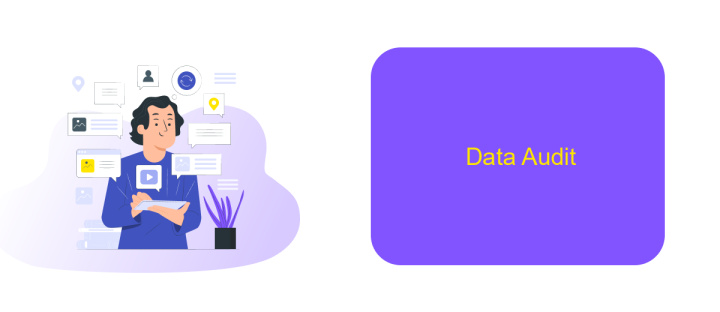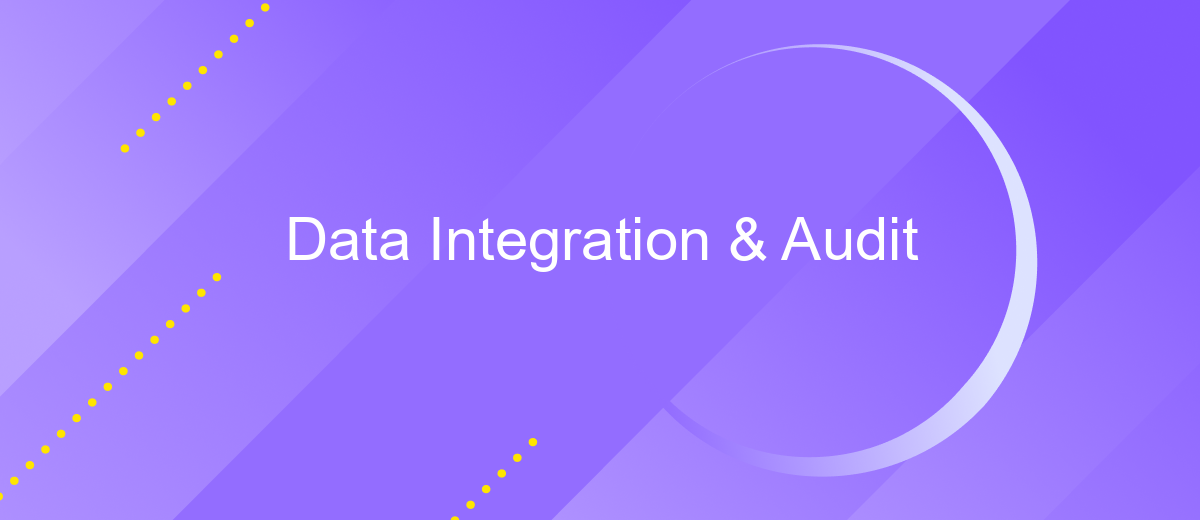Data Integration & Audit
Data integration and audit are critical components in modern business operations, ensuring seamless data flow and compliance with regulatory standards. By integrating disparate data sources and conducting thorough audits, organizations can enhance data accuracy, streamline processes, and mitigate risks. This article explores the importance of data integration and audit, outlining best practices and strategies for effective implementation.
Introduction
Data integration is a critical aspect of modern data management, ensuring that disparate data sources are combined into a cohesive and usable format. This process is essential for organizations that rely on accurate and comprehensive data to make informed decisions. Effective data integration not only improves data quality but also enhances operational efficiency and supports strategic initiatives.
- Combining data from multiple sources
- Ensuring data consistency and accuracy
- Facilitating real-time data access
- Supporting business intelligence and analytics
One of the tools that significantly streamline the data integration process is ApiX-Drive. This service allows for seamless integration of various applications and systems, automating data transfer and synchronization. By leveraging ApiX-Drive, organizations can reduce manual efforts and minimize errors, ensuring that their data is always up-to-date and reliable. As a result, businesses can focus more on analyzing the data rather than managing it, leading to more strategic insights and better decision-making.
Data Integration

Data integration is a critical process that involves combining data from various sources to provide a unified view, which is essential for informed decision-making. This process ensures that data from disparate systems, such as databases, applications, and cloud services, are accurately and efficiently merged. Effective data integration allows organizations to streamline operations, enhance data quality, and improve analytics capabilities. Key techniques include ETL (Extract, Transform, Load), data warehousing, and real-time data integration, each serving different business needs and scenarios.
One of the tools that facilitate seamless data integration is ApiX-Drive. This service offers a user-friendly platform for automating data transfers between various applications and systems without requiring extensive technical expertise. ApiX-Drive supports a wide range of integrations, enabling businesses to connect CRM systems, marketing platforms, and other essential tools effortlessly. By leveraging such services, organizations can reduce manual data entry, minimize errors, and ensure that their data is always up-to-date and readily accessible for analysis and reporting.
Data Integration Tools and Processes

Data integration is a critical component in modern data management, enabling seamless connectivity between disparate systems and ensuring data consistency across platforms. Effective tools and processes are essential for achieving robust data integration, facilitating efficient data flow and enhancing data quality.
- ETL (Extract, Transform, Load) Tools: These tools extract data from various sources, transform it into a suitable format, and load it into a target system. Examples include Talend, Informatica, and Apache Nifi.
- API-Based Integration: Tools like ApiX-Drive allow for easy integration through APIs, automating data exchange between applications without complex coding.
- Data Integration Platforms: Comprehensive platforms such as Microsoft Azure Data Factory and IBM DataStage provide end-to-end data integration solutions, supporting complex workflows and large-scale data processing.
- Middleware Solutions: Middleware like MuleSoft and Dell Boomi act as intermediaries, enabling communication and data exchange between different systems and applications.
Implementing these tools and processes ensures that data flows efficiently across the organization, supporting business intelligence, analytics, and operational processes. Tools like ApiX-Drive simplify the setup of integrations, making it easier for businesses to automate workflows and maintain data integrity. By leveraging these solutions, organizations can achieve a unified and reliable data ecosystem.
Data Audit

Data audit is a crucial aspect of data management that ensures the accuracy, completeness, and reliability of data across various systems. It involves systematically examining data sets to identify discrepancies, errors, and inconsistencies that could impact business decisions and operations.
Regular data audits help organizations maintain data integrity, comply with regulatory requirements, and improve overall data quality. By conducting thorough audits, companies can detect and rectify issues early, preventing potential data breaches and financial losses.
- Identify data sources and assess their quality
- Verify data accuracy and consistency
- Ensure data compliance with relevant regulations
- Document findings and implement corrective actions
Automated tools like ApiX-Drive can streamline the data audit process by integrating various data sources and providing real-time monitoring and reporting. This not only saves time but also enhances the precision of audits, enabling businesses to make informed decisions based on trustworthy data.


Benefits and Challenges of Data Integration & Audit
Data integration and audit offer numerous benefits, including enhanced data consistency, improved decision-making, and streamlined operations. By consolidating data from multiple sources, organizations can achieve a unified view of their information, leading to more accurate insights and effective strategies. Additionally, data integration tools like ApiX-Drive simplify the process of connecting disparate systems, enabling seamless data flow and reducing manual efforts. Regular audits ensure data integrity, compliance with regulations, and the identification of discrepancies, thereby fostering trust and reliability within the organization.
However, data integration and audit also present several challenges. Integrating data from various sources can be complex, requiring significant time and resources to ensure compatibility and consistency. Security concerns arise as sensitive data is transferred and consolidated, necessitating robust encryption and access controls. Furthermore, maintaining data quality and accuracy during integration is critical, as errors can propagate and lead to flawed analysis. Despite these challenges, leveraging advanced tools and best practices can mitigate risks and maximize the benefits of data integration and audit.
FAQ
What is data integration?
Why is data integration important for businesses?
What are the common challenges in data integration?
How can automation improve data integration processes?
What is a data audit, and why is it necessary?
Do you want to achieve your goals in business, career and life faster and better? Do it with ApiX-Drive – a tool that will remove a significant part of the routine from workflows and free up additional time to achieve your goals. Test the capabilities of Apix-Drive for free – see for yourself the effectiveness of the tool.

